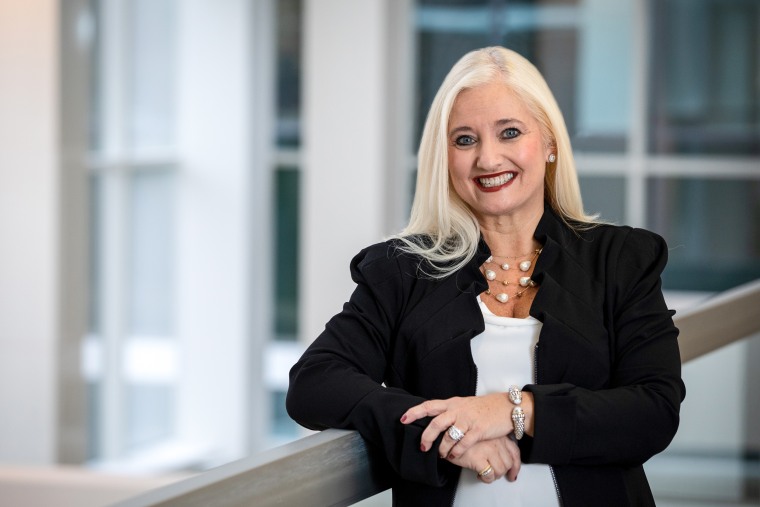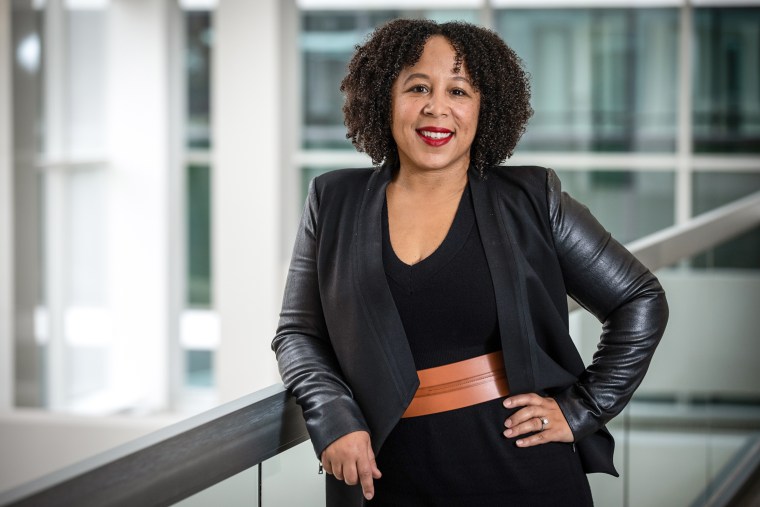Time and again, we’ve seen the pressure aimed at women in leadership when they’re positioned to take on high-risk business challenges or corporate crisis turnarounds. Take Mary Barra of General Motors, Marissa Mayer of Yahoo and Carly Fiorina of HP, for example. They were elevated to the top of the corporate ladder but placed in scenarios where their chance of failure was more likely – a “glass cliff” if you will.
Any leader during times of duress – or perhaps an impeding recession – can fail before they’ve even started if there is a lack of structural and cultural support for their sustained success. But researchers found that promoting women to higher positions often comes with negative implications, the equivalent of standing on the edge of a cliff. If they falter, they fall off.
That’s why I caught up with two high-powered women in charge of growth at the new GlaxoSmithKline (GSK) spin-off enterprise Haleon, which is now the largest consumer healthcare business in the world.
Lisa Paley, president, North America, at Haleon and Katie Williams, U.S. chief marketing officer, both face the task of leading brands that include Advil, Centrum, Sensodyne, Robitussin and Tums during a time of economic upheaval and corporate scrutiny.
For Paley and Williams, they have an intentional strategy to weather the storm. It involves building an inclusive business model – one where women can advance and thrive as key drivers of business performance.
Kuhl: How have you taken action to amplify the representation, visibility and impact of women?
Paley: In the three decades I’ve been in business and in healthcare, I've always been passionate about this … It’s incumbent that women help women get to where we need to go. So, lead from wherever you can and create that overall space and opportunity for each other.

There have been two key areas where I have been able to change the complexion of women in leadership.
While in sales leadership, there were a lot of challenges for women advancing, be it extensive travel or demands like relocations that were required. I thought we must do better. Developing women, instructing them into assignments, providing them with sponsorship and understanding those barriers in detail helped us overcome them together.
The second area was in the early days of Haleon, we were getting ready to combine companies. I was entering one that needed a more diverse leadership team. I was at the table, and I was the one who could set those expectations. It’s really important that when you are the leader, you must take those bold, courageous moments and do something about it. You always think someone else will, but they won’t. Being willing to do that was a really differential moment.
Over half of our leadership team in the U.S. for Haleon will be women, including women of color. It's a diverse leadership team, one that I think is the pinnacle for overall ultimate performance.
Kuhl: A recent global study evaluated 60,000 leaders before and during the pandemic. Women outperformed men on 84 percent of leadership qualities, including emotional intelligence, empathy and developing others amid heightened stress and business challenges. I’m on a mission to reposition these so-called “soft skills” as crucial ones. What’s your approach to align these skills to business outcomes?
Williams: I think more than ever, empathy is absolutely a critical skill. If we don't first and foremost start with empathy, we will not be able to deliver against that mission. As I've continued to hone my leadership skills, I recognized at some point in my career that my differences were my competitive advantage.

It allowed me to see people who hadn't always been seen, because I had experienced that invisibility myself, which is a critical component of empathy. When I don't understand a situation, the humility to recognize there may be something different here – where I need to be willing to learn – helps me lead better.
We're at a time where people are experiencing a lot of anxiety and I am someone who has always jumped into change and environments of uncertainty. Over the course of the pandemic, people have lost community, lost a sense of belonging and lost a sense of camaraderie at work.
We're trying to rebuild that community and empathy is critical. All the different pressures coming down on our employees requires us to understand that.
For example, I have a son who was diagnosed with generalized anxiety disorder.That was the first time where I really understood what life looks like to someone who has an outsized response to anxiety and stimulus. That process has humbled me, enabled me to learn, and translates into how I lead within our organization. Raising two young boys in a dual career household, I intentionally model myself as a mother when I’m engaging as a leader.
So now, when I'm leading at work I talk about my kids, I talk about my vacations, I talk about conversations I might have with my husband so that people can see that it is OK to have that holistic person available both at home and at work.
Kuhl: How have your different experiences made you a stronger leader?
Williams: For me, particularly as an African-American woman, I probably spent more time in my career in the early years trying to figure out how I could fit in. I wondered what I could do to make sure that people saw me as they saw other leaders, versus taking my differences and saying, I don't want you to see me as you see other leaders.
I’ve realized I want to be seen for what I can provide where other leaders can’t. I started to lean into my differences as my superpowers and turned that thinking on its head. Instead of looking at it as a barrier for me it really was a catalyst. And when I felt more comfortable leaning into that – who I was and the experiences I’ve had – that instinct became an advantage from a business and leadership perspective.

